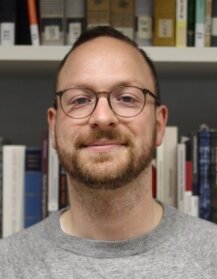
Duration: 2021–2024
Participating institutions: Friedrich Schiller University Jena, University of Birmingham, University of Plymouth, University of Cergy-Pontoise, L'Institut Paris Region in France.
Funding: German Research Foundation (DFG), Economic and Social Research Council (ESRC), Agence Nationale de la Recherche (ANR)
Research focus: Security and Freedom
Content:
The international research project "Atmospheres of (Counter) Terrorism in European Cities", funded by Deutsche Forschungsgemeinschaft (DFG), the British Economic and Social Research Council (ESRC) and the French Agence Nationale de la Recherche (ANR), will investigate the everyday affective experiences of residents of European cities with regard to counter-terrorism measures over the next three years. In addition to the Friedrich Schiller University of Jena, the University of Birmingham and Plymouth, as well as the University of Cergy-Pontoise and L'Institut Paris Region are involved in the project.
The research project is designed as an international comparative study that will shed light on the effects of counter-terrorism and terrorist threats, social emotions, collective atmospheres as well as social coexistence with the help of qualitative ethnographic survey instruments as well as a large-scale quantitative survey in France, Great Britain and Germany.
Although terrorist attacks in Europe have a comparatively low incidence compared to other regions, the debate on the threat of terrorism is growing strongly in politics and the media. Due to the increased concentration of terrorist-motivated attacks on civilian, so-called soft targets - for example, the increase in attacks on public spaces in European cities - these are reconfigured and supposedly secured in consideration of potential threat scenarios and militarised logics. This transformation of urban planning and infrastructure - such as the establishment of physical-structural hardening of infrastructure, but also the introduction of specialised and increasingly militarised police units - will examine the project in relation to the changed (emotional) experience as well as the lived reality and perception of (public) space. The transformation of infrastructure and atmosphere as well as security and threat in everyday urban life and their social as well as spatial consequences will be of great interest here.
In addition to comparing the spatial and atmospheric experiences in the European cities of Berlin, Birmingham, Nice, Paris and Plymouth, each of which are places of terror, differences in the perception, experience and evaluation of security and insecurity of urban communities within a city will also be considered. Furthermore, the project will explore how and to what extent state security apparatuses shape urban atmospheres through discursive practices and institutional, infrastructural and geopolitical transformations.
The concept of atmospheres, which moves beyond individual affective experiences to a collective and primarily spatial understanding of affect and sensoriality, will continue to be used as a theoretical and methodological lens throughout the research. Among other things, this offers the possibility to capture felt everyday experiences of safety and insecurity in urban topographies and their formal and informal coping mechanisms.

Literature (selected)
Ciax, K., Runkel, S. (2023): Geopolitics of Urban Squares: Securitization and Anti-Terrorism in Berlin’s everyday urban spaces. [submitted for assessment]
